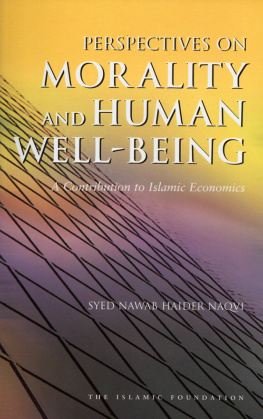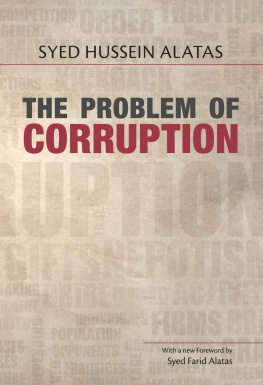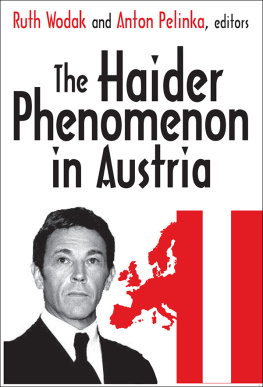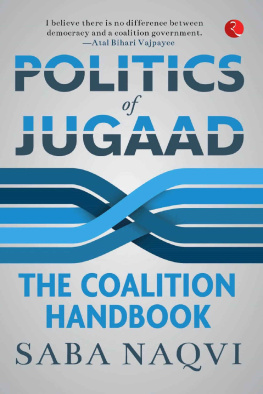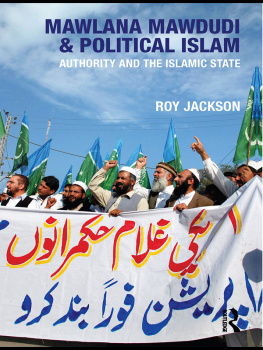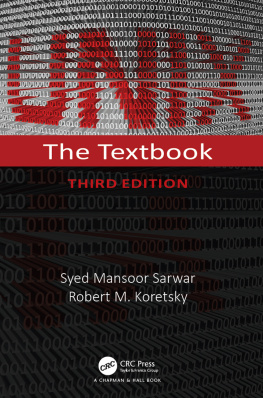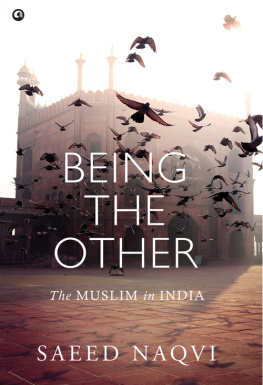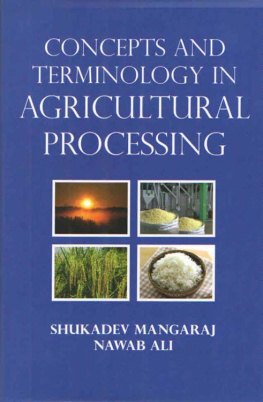Syed Nawab Haider Naqvi - Islam, Economics, and Society
Here you can read online Syed Nawab Haider Naqvi - Islam, Economics, and Society full text of the book (entire story) in english for free. Download pdf and epub, get meaning, cover and reviews about this ebook. year: 1994, publisher: Kegan Paul International, genre: Politics. Description of the work, (preface) as well as reviews are available. Best literature library LitArk.com created for fans of good reading and offers a wide selection of genres:
Romance novel
Science fiction
Adventure
Detective
Science
History
Home and family
Prose
Art
Politics
Computer
Non-fiction
Religion
Business
Children
Humor
Choose a favorite category and find really read worthwhile books. Enjoy immersion in the world of imagination, feel the emotions of the characters or learn something new for yourself, make an fascinating discovery.

- Book:Islam, Economics, and Society
- Author:
- Publisher:Kegan Paul International
- Genre:
- Year:1994
- Rating:5 / 5
- Favourites:Add to favourites
- Your mark:
- 100
- 1
- 2
- 3
- 4
- 5
Islam, Economics, and Society: summary, description and annotation
We offer to read an annotation, description, summary or preface (depends on what the author of the book "Islam, Economics, and Society" wrote himself). If you haven't found the necessary information about the book — write in the comments, we will try to find it.
Islam, Economics, and Society — read online for free the complete book (whole text) full work
Below is the text of the book, divided by pages. System saving the place of the last page read, allows you to conveniently read the book "Islam, Economics, and Society" online for free, without having to search again every time where you left off. Put a bookmark, and you can go to the page where you finished reading at any time.
Font size:
Interval:
Bookmark:
POLITICS OF ISLAM

by Routledge
2 Park Square, Milton Park, Abingdon, Oxon OX14 4RN
by Routledge
711 Third Avenue, New York, NY 10017
A catalogue record for this book is available from the British Library
ISBN: 978-0-203-07906-5 (set)
ISBN: 978-0-415-83079-9 (other)
ISBN: 978-0-203-38137-3 (other)
The publisher has gone to great lengths to ensure the quality of this reprint but points out that some imperfections in the original copies may be apparent.
The publisher has made every effort to trace copyright holders and would welcome correspondence from those they have been unable to trace.

London and New York
Kegan Paul International Ltd
UK: P.O. Box 256, London WClS 3SW, England
USA: 29 West 35th Street, New York, NY 100012299, USA
John Wiley & Sons Ltd
Southern Cross Trading Estate
1 Oldlands Way, Bognor Regis
West Sussex P022 9SA, England
29 West 35th Street
New York, NY 100012299, USA
by Intype, London
Printed in Great Britain by TI Press Ltd, Padstow, Cornwall
I. Title
297.19785
to
my wife Saeeda
and our daughters
Andalib, Tehmina, Qurratulain
and Neelofar

THE MERCIFUL,
THE MERCY-GIVING
Font size:
Interval:
Bookmark:
Similar books «Islam, Economics, and Society»
Look at similar books to Islam, Economics, and Society. We have selected literature similar in name and meaning in the hope of providing readers with more options to find new, interesting, not yet read works.
Discussion, reviews of the book Islam, Economics, and Society and just readers' own opinions. Leave your comments, write what you think about the work, its meaning or the main characters. Specify what exactly you liked and what you didn't like, and why you think so.

